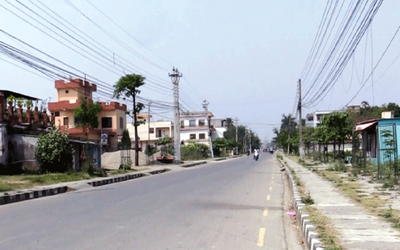After a bashing of sorts they received in Canberra, Australia in late January, the Nepali officials are girding up their loin to face the incisive queries from the global anti-money laundering body FATF in Paris, this week.
When they reach Paris, they may not be able to enjoy the beauty of the city as they are sure to remain preoccupied with the pre-interrogation jitters.
This time, officials claim, they are better prepared to satisfy the FATF member states comprising three dozen countries including almost all of the donors of Nepal.
The officials have said that the ‘progress report’ they have prepared are aimed at showing the FATF their efforts to fulfill global standards on control of money laundering and terror financing are on right track.
The major concern of the FATF is the apparent lack and delay thereof in formulation of essential laws that can control money laundering and terror financing along with failure of Nepal to sign some key international conventions related to corruption and organized crime control.
Risk of Sanction
The FATF had made clear that in case Nepal did not bring in at least half a dozen such laws, they will move towards ‘sanctioning’ the country or putting Nepal effectively in a ‘black-list.’
Such a move could have disastrous implications for the Nepali economy as well as the dignity of the nation and its citizens.
Says, Dharma Sapkota, the chief of the Nepal Rastra Bank’s Financial Intelligence Unit (FIU), “If we are blacklisted, then the LCs opened by Nepali banks could be derecognized by international banks. Our foreign assistance could suffer. More importantly, the image of the nation could receive a blot. Nepali citizens could suffer from increased scrutiny at the immigration and customs abroad.”
Such a move could be made as early as later this year in October if the FATF is not satisfied.
That is why the meeting this week in Paris is going to be so significant.
The officials at the Ministry of Finance have said that in their progress report – which will be presented by deputy Governor Maha Prasad Adhikary and a joint secretary of the Ministry – they have underscored the recent efforts at fulfilling the FATF recommendations.
“The pace of legal and structural reforms has been accelerated,” says Mahesh Dahal, director general of Department of Revenue Investigation and Anti-Money Laundering.
He pointed out the creation of FIU in NRB and the changing of the name of his department (earlier known only as Department of Revenue Investigation) as some examples of the structural adjustments made to pacify the FATF.
“In the last three years since the Anti Money Laundering Act came into being, we have also taken a number of actions to control this scourge. We had received 62 cases of money laundering. Some have been resolved but we are still investing around 45 of those. Therefore, we hope that the FATF will be satisfied with our response and no action will be taken to black list Nepal,” Dahal said.
FATF Concerns
They had called Nepal to sign a couple of international conventions, change money laundering laws and formulate new ones to deal with organized crime.
But the major challenge before Nepali officials is the way the parliament has been turned dysfunctional – as far as formulation and passage of bills are concerned – in the last one year.
In fact, since the election for new Prime Minister was started in mid-June last year, there has been not a single other agenda – excepting the budget that had to pass through tremendous challenge to get approved – that entered the House.
The FATF had been writing to the Finance Minister numerous times reminding the urgency of passing the bills to formulate new laws.
The former Finance Minister Surendra Pandey who was replaced by a new one only two weeks ago received those letters and had a tough time convincing the international partners.
“Our parties and the members of parliament have different priority at the moment. They are largely unaware about the urgency and the warnings of black-listing of their country. The FATF has one priority and we have other problems,” said Pandey.
But he was hopeful that since the new government has been formed, such obstructions will be eased in the coming days.
Twin Challenges
His optimism aside, there are two practical reasons why Nepal may not be able to fulfill FATF conditions at the soonest.
First, the new government itself is in extremely unstable position. Second, its priority and the priority of the members of the parliament – who are also playing the role of the members of the Constituent Assembly (CA) – will be in completing the peace process and the writing of the new constitution within the extended deadline of May 28, 2011.
If they want to complete their tasks at hand, they will need to be busy round the clock for the coming several months.
They may be least impressed by the deadline of the FATF.
And if that happens, then the next regional meeting of the FATF in July could deal a bloody blow to the country and move to start a process that will end up with Nepal being sanctioned later this year.
One may not need longer to see a clearer picture as the tone and direction of the Paris meeting that ends this week would decide that. And decide it would whether the Nepali delegates will be able to enjoy the city at least on their return.
- TANAHU HYDROPOWER PROEJCT: A Significant Achievement
- Apr 15, 2024
- AMBASSADOR HANAN GODAR: Sharing Pain With A Nepali Family
- Mar 30, 2024
- VISIT OF KfW AND EIB TO NEPAL : Mission Matters
- Mar 25, 2024
- NEPAL BRITAIN SOCIETY: Pratima Pande's Leadership
- Mar 24, 2024
- NEPAL ARMY DAY: Time To Recall Glory
- Mar 15, 2024
















